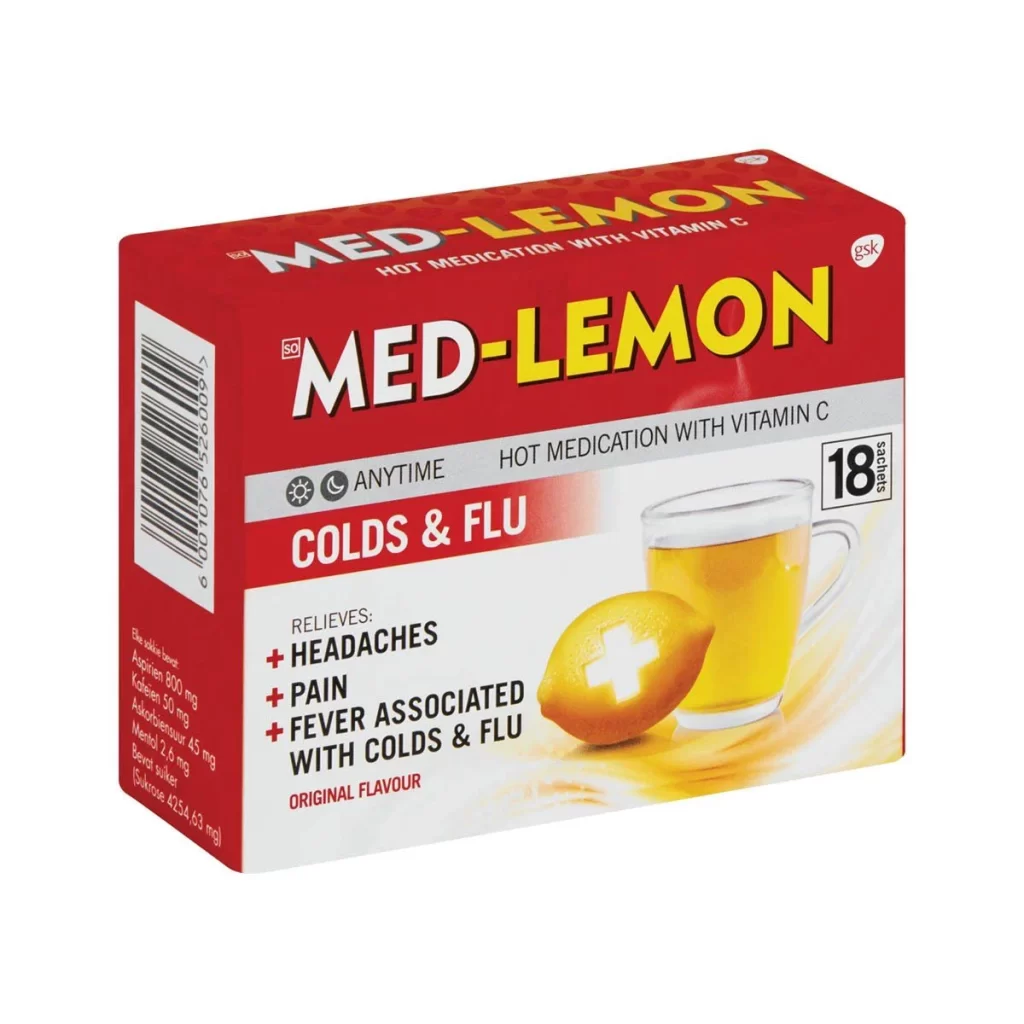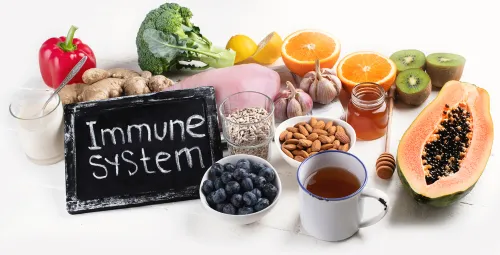Flu season is often an unwelcome period of the year, bringing with it sneezing, fever, and a host of other uncomfortable symptoms. If you’ve been unfortunate enough to catch this common virus, you’re probably in search of some affordable and reliable remedies to help you get back on your feet as soon as possible.
However, in a world where medical costs seem to be always on the rise, finding effective flu treatments that won’t leave a hole in your pocket can seem like a daunting task. Add to that, the sheer volume of flu medicines available in the market can make the decision process even more challenging.
Fear not, because that’s exactly why we’ve put together this comprehensive guide. Whether you’re searching for over-the-counter options, generics, or natural remedies, our goal is to provide you with practical, cost-effective solutions for tackling the flu.
In this in-depth blog post, we are focusing specifically on affordable flu medicine options under R100. That’s right, no need to spend exorbitant amounts of money on symptom relief. Here, we’ve curated a list of budget-friendly options that are as effective as they are light on the wallet.
Before we delve into the details, it’s crucial to remember that while these options can provide relief, they’re not a substitute for professional medical advice. If your symptoms persist or worsen, do seek out a healthcare provider.

So, buckle up and let’s take this journey together into the world of cost-effective flu remedies. We hope this guide will arm you with the knowledge you need to recover quickly without breaking the bank. Let’s get started!
Table of Contents
Understanding the Flu: More Than Just a Common Cold
The flu, or influenza, is a highly contagious viral infection that predominantly attacks the respiratory system – the nose, throat, and lungs. Before we dive into our list of affordable flu medicine options under R100, let’s ensure we’re all on the same page about what the flu really is. Knowing your enemy is half the battle won, after all.
Contrary to some beliefs, the flu is not just a severe version of the common cold. Although both ailments share several symptoms, they are caused by different types of viruses. Influenza viruses tend to cause more severe disease, leading to serious complications, such as pneumonia, and can even be fatal in certain high-risk groups.
Symptoms: Know What You’re Up Against
The flu can start suddenly and hit hard. Typical flu symptoms include:
- Fever: Most people with the flu experience a fever, usually 100°F or higher.
- Chills: Often accompanying the fever, chills are a standard symptom of the flu.
- Body aches and Muscle pains: These aches can be severe, often affecting the back, arms, legs, and head.
- Cough: A persistent cough is common and can worsen in severity as the infection progresses.
- Congestion: Nasal stuffiness and a runny nose can be frustrating symptoms.
- Headaches: Flu-related headaches can range from moderate to severe.
- Fatigue: Many people with the flu experience tiredness and lack of energy, which can persist for weeks even after other symptoms have resolved.
Symptoms usually appear 1 to 4 days after exposure to the virus. It’s important to note that not everyone with flu will have all these symptoms, and severity can vary from person to person.
Transmission: How It Spreads
Influenza spreads primarily through droplets when people with the illness cough, sneeze, or talk. You can also catch the flu by touching a surface or object that has the virus on it and then touching your face.
Understanding the nature of the flu and how it operates can make dealing with it easier and less stressful. Now that we’ve shed some light on what the flu is, we can dive into the core of our discussion – affordable flu medicines that cost under R100. Let’s move on to explore the various options that can help you feel better without straining your budget.
Over-the-Counter (OTC): Affordable flu medication
When the flu hits, time is of the essence. The faster you can alleviate your symptoms, the quicker you can get back to feeling like yourself again. One of the easiest and most affordable ways to find relief is through over-the-counter (OTC) medications. These are readily available in pharmacies, and you don’t need a prescription to purchase them.
Before we delve into the specifics of these cost-effective flu fighters, it’s essential to understand that OTC medications don’t cure the flu. Their main goal is to help you manage the symptoms, making you more comfortable as your body fights off the virus.
1. Generic Paracetamol
Price Range: R20 – R50
Paracetamol, or acetaminophen, is a common medication found in many households. It’s a go-to remedy for a variety of ailments, including headaches, minor aches and pains, and most relevantly for our discussion, symptoms of the flu. Paracetamol is particularly effective in relieving fever and easing body aches associated with influenza.
Generic versions of paracetamol are budget-friendly and just as effective as the more expensive branded versions. Always follow the dosage instructions on the package to ensure you’re using it safely.
2. Generic Ibuprofen
Price Range: R30 – R60
Ibuprofen is another widely-used over-the-counter medication that can help manage flu symptoms. As a non-steroidal anti-inflammatory drug (NSAID), ibuprofen can help reduce fever and inflammation and alleviate body aches and pains.
Again, generic versions of ibuprofen are typically much more affordable than branded options but work just as well. As with paracetamol, make sure you follow the recommended dosage.
3. Cold and Flu Symptom Relief Medications
Price Range: R50 – R100
If you’re dealing with multiple flu symptoms at once, such as a runny nose, congestion, body aches, and fever, you might want to consider combination cold and flu medicines. These are OTC medications that contain a mix of active ingredients designed to tackle several symptoms simultaneously.

Common ingredients in these medicines can include paracetamol for fever and aches, a decongestant like pseudoephedrine or phenylephrine to clear your nasal passages, and sometimes an antihistamine to control allergy-like symptoms.
These combination medicines are a convenient and cost-effective way to manage your flu symptoms. However, always remember to read the label carefully to avoid taking too much of any one ingredient, particularly if you’re using other single-ingredient medications alongside them.
4. Decongestants
Price Range: R40 – R80
When it comes to clearing up a stuffy nose and relieving sinus pressure, decongestants come in handy. These medicines, available in oral form or as nasal sprays, work by narrowing blood vessels to reduce swelling and congestion in the nasal passages. Examples of common OTC decongestants include pseudoephedrine and phenylephrine. However, be cautious not to use nasal spray decongestants for more than a few days, as prolonged use can lead to rebound congestion.
5. Antihistamines
Price Range: R40 – R80
Antihistamines are another useful class of OTC medications that can alleviate some flu symptoms. They’re often used to combat allergic reactions, but they can also help with runny noses and sneezing caused by the flu. Diphenhydramine (Benadryl) and loratadine (Claritin) are two examples of antihistamines. Remember, some antihistamines can cause drowsiness, so it’s important to be mindful if you’re driving or operating machinery.

6. Cough Suppressants and Expectorants
Price Range: R40 – R90
Coughing is a common and particularly annoying symptom of the flu. Fortunately, there are several OTC medicines that can help. Cough suppressants, like dextromethorphan, work to block the cough reflex, thereby reducing the urge to cough. On the other hand, expectorants like guaifenesin can help loosen mucus in your airways, making it easier to cough out. Some products combine both a cough suppressant and an expectorant to help manage a troublesome cough.
Remember, it’s always wise to consult a healthcare professional or pharmacist if you’re unsure which medication is right for you. Everyone’s body and illness experience are unique, so a tailored approach often works best. Furthermore, it’s crucial to read and follow the dosage instructions on the packaging and never exceed the recommended dose. Your health and safety should always be the top priority.
Natural Remedies: Gentle and Affordable Alternatives
In addition to the over-the-counter medications we’ve already discussed, there are also a number of natural remedies that can help alleviate flu symptoms. While they won’t cure the flu, they can support your body’s natural healing process and make you more comfortable as you recover. Here are some of the most popular and effective natural remedies that won’t put a strain on your wallet.
1. Honey
Price Range: R30 – R80
Honey, particularly in its raw form, has been used for centuries as a natural remedy for a host of ailments. When it comes to flu, honey is a great help due to its soothing and antimicrobial properties. It can help soothe a sore throat and cough, which are common symptoms of the flu.
To use honey for flu relief, simply add a spoonful to a cup of warm water or herbal tea. Not only does this add a touch of sweetness to your drink, but it also coats and soothes your throat, providing immediate relief from the discomfort of a sore throat and cough.
2. Ginger
Price Range: R20 – R50
Ginger is another natural remedy that has been in use for thousands of years, particularly in traditional Asian medicine. It is known for its anti-inflammatory properties, which can help reduce the inflammation that often accompanies the flu.

For flu relief, you can make a simple and comforting ginger tea. Cut up a few pieces of fresh ginger root and steep them in hot water for about 10 minutes. You can also add a spoonful of honey for extra soothing power.
3. Vitamin C
Price Range: R60 – R100
Vitamin C plays a crucial role in maintaining a healthy immune system. While it won’t necessarily prevent the flu, some research suggests that it can shorten the duration and reduce the severity of symptoms.

You can get your dose of vitamin C from a supplement, or better yet, from vitamin C-rich foods. Citrus fruits like oranges, lemons, and grapefruits are excellent sources. Other vitamin C-rich foods include bell peppers, strawberries, and kiwifruit.
4. Hydration and Rest
Price Range: Free!
Finally, let’s not forget the most natural remedies of all – hydration and rest. Drinking plenty of fluids helps to prevent dehydration, which can worsen flu symptoms and delay recovery. Water, herbal teas, and clear broths are all excellent choices.
Similarly, rest is vital for recovery. Your body needs energy to fight off the virus, and getting plenty of sleep can help.
Remember, these natural remedies are intended to complement, not replace, traditional flu treatment methods such as over-the-counter medications. And as always, consult a healthcare professional if your symptoms persist or worsen.
By incorporating these natural remedies into your flu recovery plan, you can help support your body’s healing process and potentially shorten the duration of your illness. Plus, all of these remedies are affordable and easily accessible, making them a great addition to any flu-fighting arsenal.
Frequently Asked Questions About Affordable Flu Medicine Options Under R100
When it comes to dealing with the flu, it’s normal to have a lot of questions. After all, the more you know, the better prepared you’ll be to fight off this common ailment. To help you out, we’ve compiled and answered some of the most frequently asked questions about affordable flu medicine options under R100. These should provide you with further insight and serve as a valuable resource for navigating your flu recovery journey.

Can OTC medications cure the flu?
No, over-the-counter (OTC) medications cannot cure the flu. They are designed to alleviate the symptoms of the flu, such as body aches, fever, and congestion, making the illness more bearable as your body fights off the virus.
Are generic medications as effective as name-brand options?
Yes, generic medications contain the same active ingredients as name-brand options and are just as effective. They are typically cheaper because they don’t have the same development and marketing costs as name-brand drugs.
How long does it take for flu symptoms to subside?
Flu symptoms typically last about one to two weeks. Most people start to feel better after a few days, but it’s not uncommon for some symptoms like fatigue and cough to persist for a couple of weeks.
Are natural remedies effective against the flu?
Natural remedies can help alleviate some symptoms of the flu and support your body’s healing process, but they can’t cure the flu. It’s always recommended to pair natural remedies with other treatments and to consult a healthcare professional if symptoms persist or worsen.
Is it safe to combine different OTC medications?
It can be, but you need to be careful not to double up on ingredients. Many OTC medications, especially combination cold and flu remedies, contain the same active ingredients. Taking too much of any one ingredient can lead to a potentially harmful overdose.
Can I prevent the flu?
The best way to prevent the flu is to get an annual flu vaccine. Other preventive measures include frequent handwashing and avoiding close contact with people who are sick.
How do I know if I have the flu or just a common cold?
While the symptoms can be similar, flu symptoms are usually more severe than those of a common cold and come on more suddenly. Also, fevers are more common with the flu.
Can I take flu medication if I’m pregnant or breastfeeding?
It’s important to consult a healthcare provider before taking any medication, including OTC options, if you’re pregnant or breastfeeding. Some medications may not be safe for your baby.
Can I give my child adult flu medication?
No, you should never give a child adult medication unless instructed by a healthcare provider. Children need different doses than adults, and some adult medications may not be safe for children.
Should I see a doctor if I have the flu?
Most people with the flu do not need to see a doctor unless they’re at high risk for complications. However, you should seek medical attention if you have severe symptoms like difficulty breathing, persistent fever, or if your symptoms worsen after starting to improve.
We hope this FAQ section has answered some of your pressing questions regarding affordable flu medicine options under R100. Remember, while dealing with the flu can be an uncomfortable and frustrating experience, there are many cost-effective treatment options available to help manage your symptoms. Don’t hesitate to reach out to a healthcare professional if you have further questions or if your symptoms persist or worsen. Your health and well-being should always be the top priority.
The Takeaway
Battling the flu doesn’t have to be an expensive ordeal. There are numerous affordable flu medicine options under R100 available. So, the next time you find yourself with a case of the flu, remember these options and know that relief is within reach without straining your wallet.
Please remember, these suggestions are not a replacement for professional medical advice. If your symptoms persist or worsen, make sure to consult with a healthcare provider.
Stay healthy, stay safe, and remember that prevention is always better than cure. Make sure to get your annual flu shot, wash your hands regularly, and maintain a healthy lifestyle to keep your immune system strong.
Additional Resources
We have provided several online resources where you can find more information about affordable flu medicine options, flu symptoms, prevention, and general health. Here they are:
- World Health Organization – Influenza (Seasonal) – This is a comprehensive resource about the seasonal flu from the World Health Organization.
- Centers for Disease Control and Prevention (CDC) – Flu – CDC offers detailed information on flu symptoms, prevention, and treatment.
- National Institutes of Health (NIH) – Flu – The NIH provides extensive information on the flu, including research updates and prevention tips.
- Mayo Clinic – Influenza (flu) – The Mayo Clinic offers a comprehensive guide on the flu, including symptoms, causes, risk factors, complications, prevention, and treatment.
- WebMD – Cold, Flu, & Cough Health Center – WebMD provides an extensive resource center for information about the common cold, flu, and cough.
- MedlinePlus – Flu – MedlinePlus provides user-friendly information about the flu, including symptoms, treatment, prevention, and the latest research.
- Harvard Health – Cold and Flu – Harvard Health offers a collection of articles and blogs about cold and flu, including prevention strategies and treatment options.
- Healthline – Flu – Healthline provides a variety of articles about the flu, including treatment options, tips for prevention, and the latest research findings.
- Everyday Health – Flu – Everyday Health provides a guide to the flu, with resources on symptoms, treatment, and prevention.
- American Lung Association – Flu Facts – The American Lung Association offers information on the impact of the flu on lung health and general health.
These resources should provide you with a wealth of information about the flu, treatment options, and ways to stay healthy during flu season. Always remember to consult a healthcare professional if you’re dealing with persistent or severe flu symptoms.


